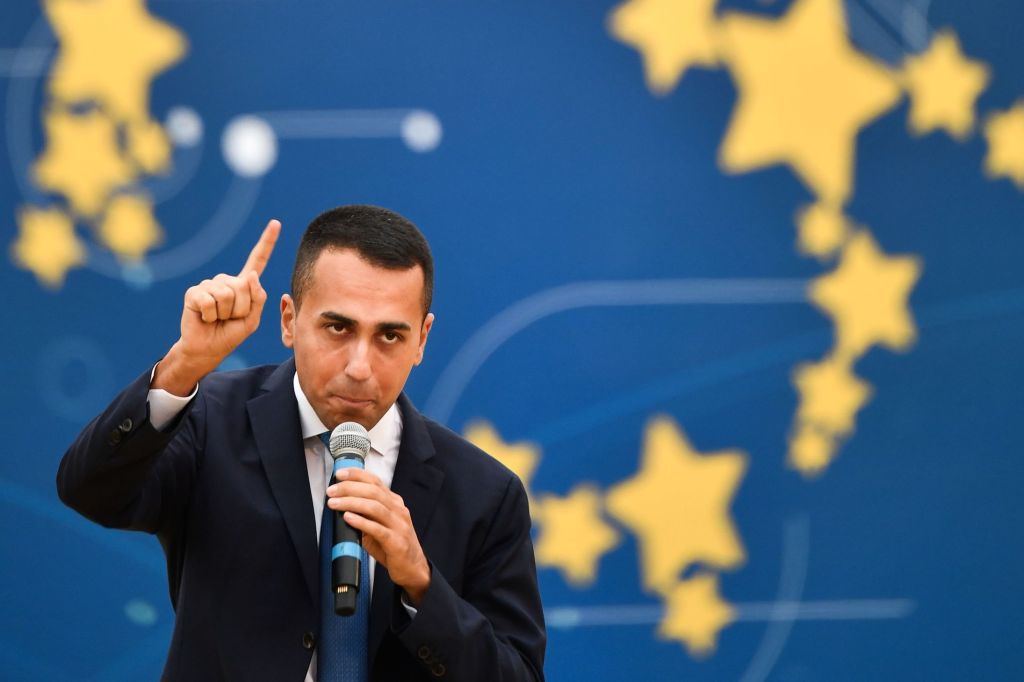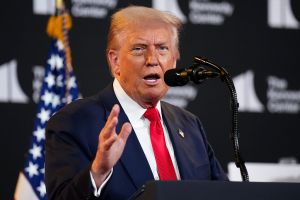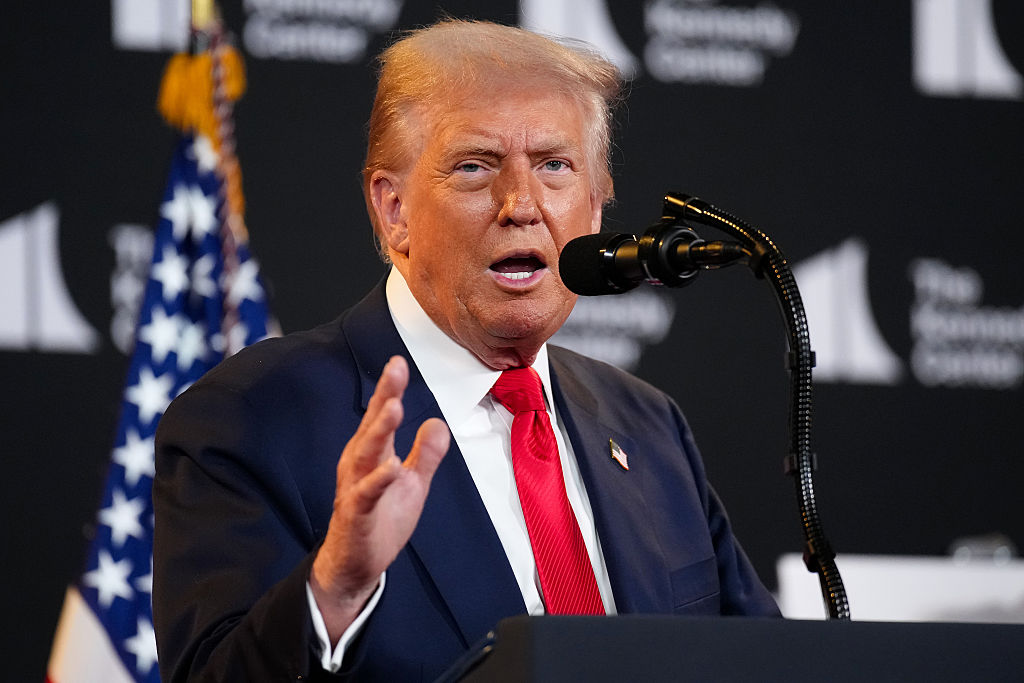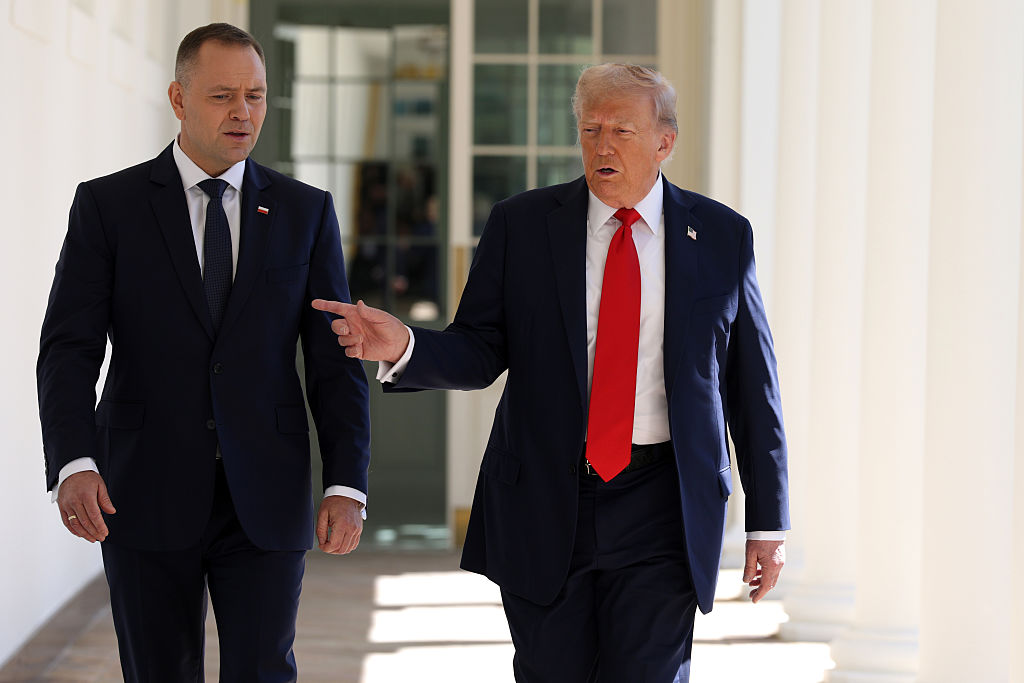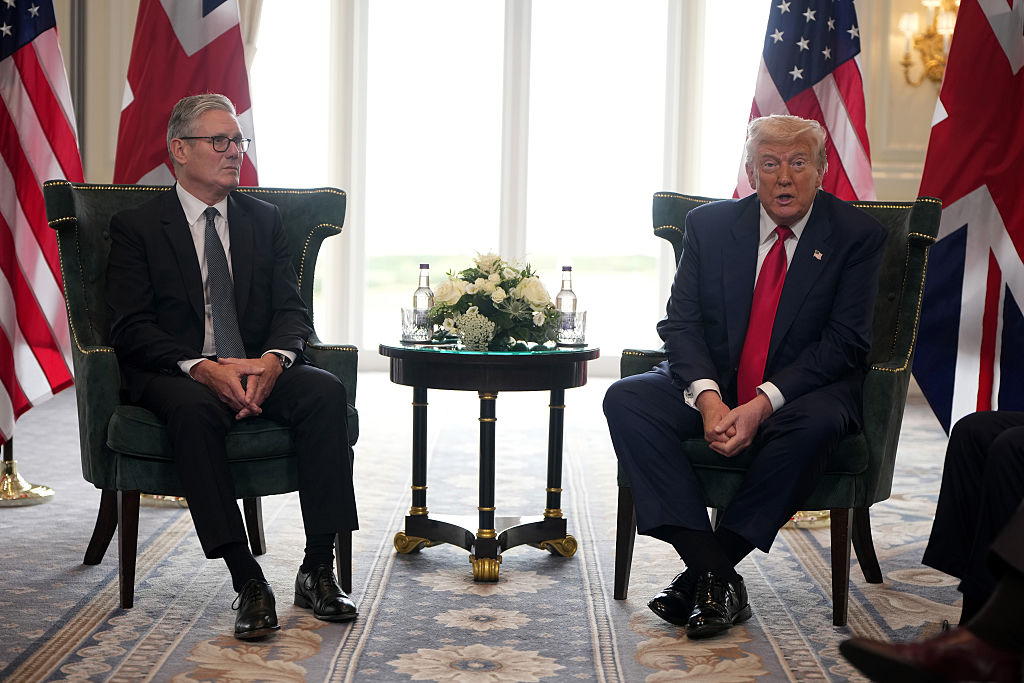To judge from what is going on in Italy, the only major European country where populists are in power, right-wing populism works but left-wing populism does not. The senior partner in Italy’s populist coalition government – the alt-left Five Star Movement – is hemorrhaging support, while the popularity of the junior partner – the radical-right League – soars ever higher.
In regional elections in Sardinia last Sunday, Five Star got just 11 percent of the vote compared to the 42 percent it got on the island at Italy’s general election in March 2018. The League’s candidate, by contrast, at the head of a right-wing coalition, won with 47 percent. This catastrophic result for Five Star comes two weeks after a similar rout in regional elections in Abruzzo. The situation is pretty much as bleak for Five Star at national level.
At the general election, in which no party or coalition won enough votes to get a working majority, Five Star got more than any other party – 32.7 percent – compared to the League’s 17.4 percent. This gave Five Star 222 MPs, compared to the League’s 125. The two parties – though sworn enemies – cobbled together a contract to govern in coalition and implement a limited number of their respective manifesto pledges. But support for Five Star in the polls slumped. Now it is in freefall. In the latest polls, Five Star is on 22 percent and the League on 33 percent. And although Five Star has more MPs and ministers it has completely lost the initiative to the League in the running of Italy’s government.
This complete turnaround in fortunes demonstrates above all that Five Star’s brand of left-wing populism may work in opposition but not in government or in practice. And it shows that the League’s rightwing populism does work. This is partly because Five Star has no experience of government, whereas the League – as junior partner in several past Silvio Berlusconi governments – does. But it is above all due to the absurdity of its utopian goals.
To date, the only concrete success of Italy’s populist government – and it is an incredible success – has been to stop illegal migrants being ferried across the Mediterranean from Libya to Italy. Since 2014, 650,000 migrants arrived on Italy’s shores but Italy’s populists have all but stopped this human trafficking (23,400 arrived in 2018). They did so mainly by refusing to allow charity ‘rescue’ ships to dump migrants in Italy anymore and by equipping and training the Libyan coastguard to pick up migrants soon after entering the sea and take them back to Libya.
The driving force behind this tough new approach on illegal migrants posing as refugees is leader of the League, Matteo Salvini – coalition deputy prime minister and interior minister – not Five Star, which has nonetheless gone along with it. Though it has infuriated the global liberal elite it has proved wildly popular with Italians – not because they are racist but because they are fed up with Italy being treated like a camp for migrants who, once in, never get deported.
Meanwhile, at the end of last year, Italy slid back into technical recession for the third time in the decade since the global banking crash. Imprisoned inside the straight-jacket of the single currency, Italy is virtually powerless to do anything about it. The League which is pro-business and pro traditional Catholic values – but hostile to global multinationals and boiling with Euroskepticism – has so far failed to deliver on its promise to lower taxes, let alone introduce the signature proposal in its election manifesto of a flat tax. But at least it has delivered on migrants.
Five Star, on the other hand, has failed to deliver on anything much – except a truncated version of its key welfare proposal of a citizen’s wage (aka , which does not exist in Italy). This secured it a majority of votes at the general election in the south where few people (unless they work for the government) have a real job, but is a hugely costly proposal that Italy – whose youth unemployment is 31.9 percent and whose public debt is 132 percent of GDP – can ill afford.
The longer Five Star continues in coalition with the League, the more it betrays its roots and founding principles as a left-right group but above all left-wing revolutionary alternative – and the more angry, divided and disillusioned its members become. There are now potentially fatal rows between Five Star and the League on a number of key issues, especially the planned high-speed rail-link under the Alps between Turin and Lyon. Five Star, mainly for environmentalist reasons, virulently opposes this Franco-Italian project which was already agreed before it came to power. The League supports it.
Ratings agency Fitch predicted at the end of February that the coalition government cannot last its full five-year term. But the slump in support for Five Star means that it has far more to lose than the League if the coalition collapses – which it surely must – and there are new elections. The League may not be able to get enough votes to govern alone but it can always return at national level to its former right-wing allies, such as Silvio Berlusconi’s Forza Italia with whom it stood in the general election and with whom at regional and local level it is still allied. On current polling, such an alliance would easily win enough votes to form a government.
The only option for Five Star would be to try to strike a deal with Italy’s former ‘jobs for the boys’ communist party, the Partito Democratico, of penultimate prime minister Matteo Renzi, which it also hates and which is also doing very badly in the polls.
Five Star draws support primarily, but not exclusively, from those on the left who are anti-establishment, anti-parliament, anti-Church, anti-global capitalism, Euroskeptic and climate-change obsessed. It began as a protest movement in 2009 founded by the comedian Beppe Grillo – a Latin version of Billy Connolly – whose slogan was Vaffa! (fuck off, roughly) to everything, more or less, especially to obligatory vaccinations for children, political dishonesty and the obsession with GDP growth – everything, that is, except wind farms.
It vowed to sack and jail corrupt and criminal politicians and tax evaders and promote what it calls decrescita felice (happy degrowth). It vowed never to become a political party but remain a movement. One of its cardinal rules is that any elected politician under investigation for a crime, let alone convicted of a crime, must resign.
Yet in January, when Italy’s notoriously left-wing prosecuting judges ruled that Salvini should be put on trial for kidnapping 177 migrants picked up close to the island of Lampedusa, who last summer he refused to let disembark in Catania until other EU governments took them, Five Star even abandoned that sacred principle as well. Five Star’s senators voted last month – along with those of the League and its former allies on the right – to refuse to lift Salvini’s immunity from prosecution as a senator. Five Star leader Luigi Di Maio, the other deputy prime minister and employment minister, even signed a document saying that the decision to ‘kidnap’ the migrants was not Salvini’s but the government’s. Prosecuting judges will no doubt now come after them as well.
The League is doing even better in the polls for the forthcoming European Parliament elections in May where it will stand, as it does in Italy’s regional and local elections, against Five Star. According to an Ipsos poll for the Corriere della Sera published this weekend, the League will get 35.9 percent of the vote and Five Star just 21.2 percent. This would give the League about 30 seats (up from six) and transform it into the largest single national party in the European Parliament, possibly even ahead of Angela Merkel’s German Christian Democratic Union, which currently has 34 seats but according to polls will get only 28 this time.
The May Euro elections will see Europe’s imperialisti, who want ever closer union, championed by French president Emmanuel Macron, desperately trying to stop Europe’s sovranisti, who want a return to Europe des Patries, championed by Salvini and the League, storming the citadel. If Italy is anything to go on, Macron and the imperialisti are in very deep trouble. And compared to this, Brexit is a mere bagatelle.
This article was originally published on The Spectator’s UK website.



